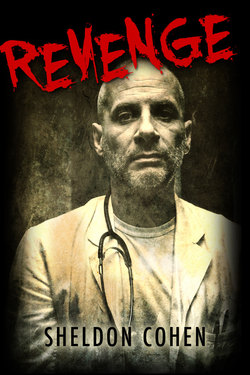Читать книгу Revenge - Sheldon Cohen - Страница 4
На сайте Литреса книга снята с продажи.
CHAPTER 2 Doris returned home the next night at nine. She had spent the day at a church ceremony in Wisconsin in honor of her octogenarian father. He was eighty-eight years of age and frail, so she wanted to be sure to visit with him. Her mother of eighty-two was in excellent health and a fine caregiver, so Doris was confident that her father was in good hands. Doris was reluctant to leave Mark, but he insisted she visit with her father. They both knew he was living on borrowed time.
ОглавлениеOn returning to Chicago, she entered her darkened home. She heard the television in the bedroom. She didn’t call out to her husband so as not to awaken him; he needed all the rest he could manage. Upon entering the bedroom, she froze. By the light of the flickering TV, the nurse in her knew what she was observing. The wife in her cried out in anguish. Her first reaction was to pick up the phone and dial 911 for the paramedics. Then she looked at her husband again. His eyes were closed, his mouth was open, his skin was blue-gray, his arm felt cold and hard. She noted his dilated pupils, but wiped it from her consciousness as she did the other signs of death. Striking the front of his chest with a closed fist, she started CPR on her husband’s lifeless body. She pressed her fisted hands over his sternum, counting one…two…three…four…five, and up and forced her breathe into his mouth even though she had read recently that the chest compression was the thing and the breaths were less important. She kept this up for what seemed like hours until the paramedics knocked on the door. She stepped back and watched as they took over and placed electrocardiogram leads on her husband. Her eyes opened wide as the tracing came out of the machine. It showed what she knew she would see: a flat line. Doris could see the hopelessness written on the paramedic’s faces. She screamed out, “Give him more CPR. Take him to Covenant. Try and save him, please.” At the same time, the nurse in Doris knew that her words were futile.
The paramedics continued working and rushed him to Covenant Hospital. As soon as they were in the ambulance, they were in direct communication with the ER. Doris followed in her car. They arrived at the emergency room and the paramedics wheeled the patient to a room prepared for cardiac resuscitation, Doris heard the evening crew of the Emergency Department ask the paramedics, “How long has he been this way?”
“We don’t know. His wife found him like this. He was dead in bed.”
In a fog, Doris watched as they got the portable electroencephalogram and set him up. She winced as they performed a difficult endotracheal intubation and breathed for him while performing cardiac compression. Doris stood next to her husband. By now, the nurse in her was in control. The EEG paper tape, with its flat line reading indicating no brain electrical activity, came out of the machine like a slow rolling fog. The tracing looked like the flat line of his ECG, only these were many lines, and they were the flat lines of a brain that ceased to create the micro-electric currents that meant life.
“What shall we do, ma’am?”
She stared at her husband and rubbed his forearm. With moist eyes and with quivering lips, she whispered, “Let him be.”
Within twenty minutes, everyone in the hospital knew that Dr. Mark Harrison came to the Emergency Department dead on arrival. “Would you care to have an autopsy?” asked one of the emergency physicians.
She stared ahead for a few seconds before she answered, “No, we know his problem. Thank you.”
A week later, hospital administration would hold a memorial for Dr. Harrison in the hospital chapel. Dr. Jason Pollard, chairman of the Department of Emergency Medicine would be there. He would be one of those selected to give a eulogy. Having worked often with Dr. Harrison in the Emergency Department, Pollard could relate many examples of his dedicated and selfless care.
